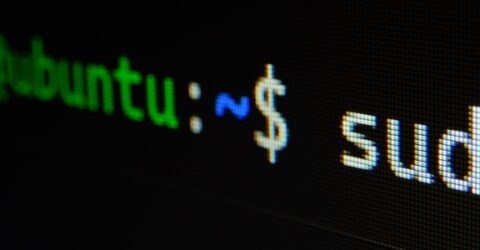Why you should consider Linux for your next computer
Despite the advantages of Windows and macOS, you should also consider Linux when choosing a new computer

Walk into a consumer electronics store, and the choice of computers might seem overwhelming.
There are laptops and desktops, Macs and PCs. There are cheap Chromebooks and high-end gaming rigs. There are all-in-ones, two-in-ones, and brands you’ve never heard of.
It might therefore seem ridiculous to suggest considering a different option entirely – one that requires a degree of self-installation, and isn’t displayed on the shelves of Currys or John Lewis.
Yet there are many reasons why you should consider Linux over other operating systems like Windows, macOS or ChromeOS.
Consider what?
Linux is an operating system designed to run desktop and laptop computers – but not tablets or mobile devices.
Having said that, Android is based on Linux, so many readers will already be using a variation of Linux in their daily lives.
It also supports Amazon Web Services, many in-car infotainment systems, cPanel, innumerable web servers and even ChromeOS – Google’s own lightweight operating system.
Linux has blazed a trail Microsoft and Apple have often found themselves following, pioneering network functionality and dynamic desktops.
Five reasons to consider Linux
1. Cost. Unlike the licensed versions of Windows and macOS, Linux is free to buy and use.
It’s also open source, which means it can be edited and modified freely, without any copyright or warranty infringement issues arising.
Free access to the gorgeous desktop environments offered by Pantheon and GNOME (including dynamic wallpapers) is a luxury touch normally reserved for high-end gaming PCs.
2. Flexibility. It’s been thirty years since the first iteration of Linux was released to the general public. Since then, it’s fragmented into different versions, known as distros.
This means you can choose an operating system that does exactly what you want, rather than being restricted to the activities your chosen operating system permits.
As well as choosing the distro that best meets your needs or suits your requirements (strong tech support, frequency of updates), you can customise it to your heart’s content.
3. Safety. The risks of PC malware are widely known, and Apple devices are increasingly being targeted by cybercriminals as well.
Yet because of its subtly incompatible distros and its relatively small market share (less than three per cent of the world’s computers), Linux-based malware is comparatively rare.
You still need antivirus software, though, since Linux is increasingly used to power servers, making it a target among some hackers.
4. Community support. Requesting support from Microsoft or Apple can feel akin to banging your head against the wall, while the timed deprecation of macOS and ChromeOS means obsolescence is baked in.
There are no such issues with Linux, where each distro has a thriving community of advocates and experts ready to offer advice and support at no cost.
You could potentially run a Linux device for decades, updating its software on whatever frequency that distro recommends, without the computer becoming a glorified paperweight.
5. Reliability. Windows users have the Blue Screen of Death and macOS devices have the spinning rainbow wheel – harbingers of a stalled process or crashed software.
By contrast, Linux is remarkably stable. This is because of the way it handles background processes, which is a facet too technical to explore here in any real depth.
In reality, it means fewer glitches and crashes, smoother day-to-day operations and more processing power for the task you’re focusing on at any given moment.






